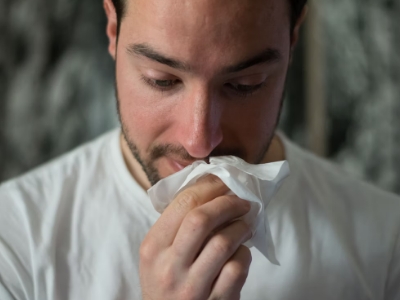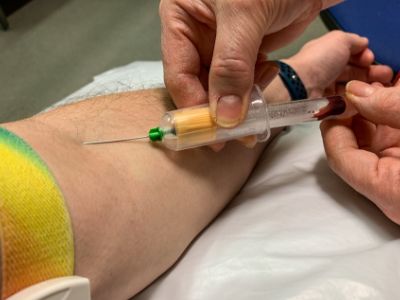Hay Fever: Symptoms, Causes, and Treatment

What is Hay Fever?
Hay fever is an allergic reaction to pollen when it comes into contact with your mouth, throat, or nose, and throat. Pollen is a fine powder from plants. The proper name for this condition is allergic rhinitis, which means inflammation inside your nose.

Signs and Symptoms?
- Runny nose and nasal stuffiness
- Allergic conjunctivitis
- Watery, itchy, red eyes
- Sneezing and coughing
- Itchy nose including the roof of mouth or throat
- Mucus that runs down the back of your throat
- Allergic shiners or swollen and bruised-appearing under the eyes
- Extreme tiredness due to poor sleep
What Causes Hay Fever?
When you have hay fever, your immune system mistakenly identifies a harmless airborne substance as being harmful. It causes your immune system to protect protects itself, so it produces immunoglobulin E antibodies to protect against this allergen. The next time you come in contact with the allergen, these antibodies signal your immune system to release chemicals such as histamine into your bloodstream. This causes a reaction that leads to the symptoms of allergic rhinitis. Other causes and risk factors include:
- Having other allergies or asthma
- Living or working in a setting that constantly exposes you to allergens
- Exposure to animal dander or dust mites
- Being exposed to smoke and strong odors
- Having a condition called atopic dermatitis or eczema, which makes your skin irritated and itchy
- Having a blood relative, such as a parent or sibling, with allergies or asthma
- Other triggers that irritate the lining of the nose

Diagnosing Hay Fever
- Skin prick test. Small amounts of material that can trigger allergies are pricked into patches of skin on your arm or upper back. If you are allergic, you develop a hive at the site of that allergen. This typically takes about 15 to 20 minutes.
- Allergy blood test. A blood sample will help measure your immune system’s response to a specific allergen. This test measures the amount of allergy-causing antibodies in your bloodstream, known as immunoglobulin E antibodies.
Treatment and Management of Hay Fever
The best treatment is to limit your exposure to substances that cause your condition. If your hay fever is not severe, your doctor may recommend medications. You can also buy without a prescription may be enough to relieve symptoms. For worse symptoms, you may need prescription medications.
Recommended Medications for Hay Fever
- Budesonide Nasal Spray. It is used to treat allergies and other nasal symptoms. In hay fever, inflammation is a notable symptom. The nasal passages are affected and cause trouble breathing. Budesonide Nasal Spray acts on multiple sites of the inflammatory cascade and helps in reducing the irritation.
- Cetirizine HCL. It treats symptoms such as sneezing, itching, and rashes produced during an allergic reaction due to the histamine released by the body. Due to the efficacy of the drug, it has become very popular the world over and is one of the most widely used drugs for the treatment of allergies.
Immunotherapy for Hay Fever
Immunotherapy might be especially effective if you’re allergic to animal dander, dust mites, or pollen. In children, immunotherapy may help prevent asthma. Doctors will recommend allergy shots to change the way the immune system reacts to allergens. Aside from allergy shots, some physician also recommends taking tiny amounts of allergen in pill form that dissolves in your mouth. Pills are usually taken daily.
Lifestyle and Home Remedies
Reduce your symptoms by limiting your exposure to the typical triggers by knowing what you are allergic to. For pollen or mold, aversion ensure avoiding outdoor activity in the early morning, when pollen counts are highest, and also on high pollen-count days.
Consider removing carpeting, especially where you sleep, if you are highly sensitive to dust mites. Keep pets out of your home or bathe them regularly to avoid attacks caused by pet danders. Talk to your doctor if you are considering taking alternative or herbal medications.



